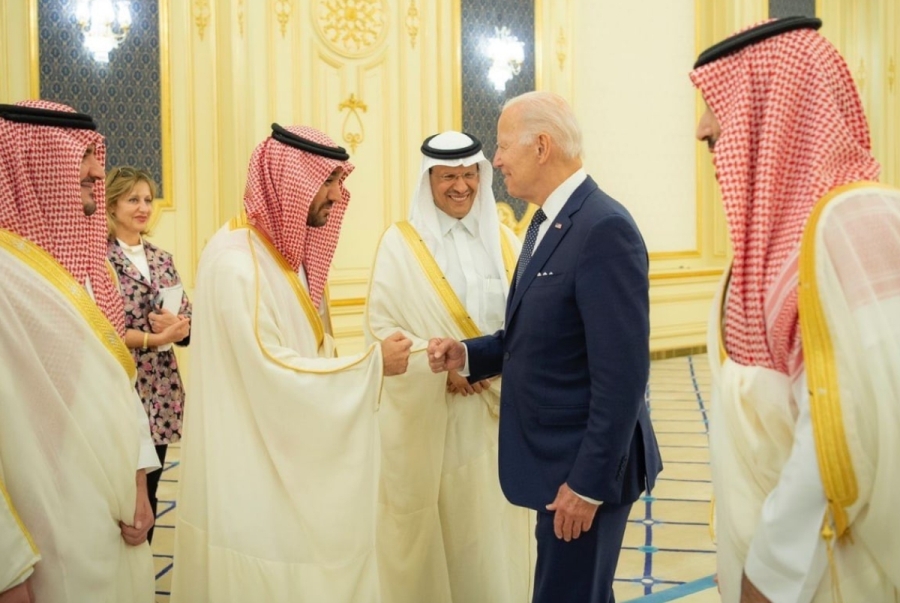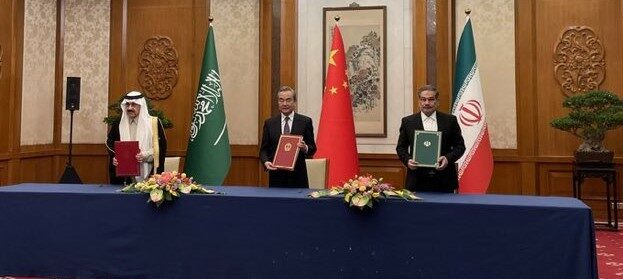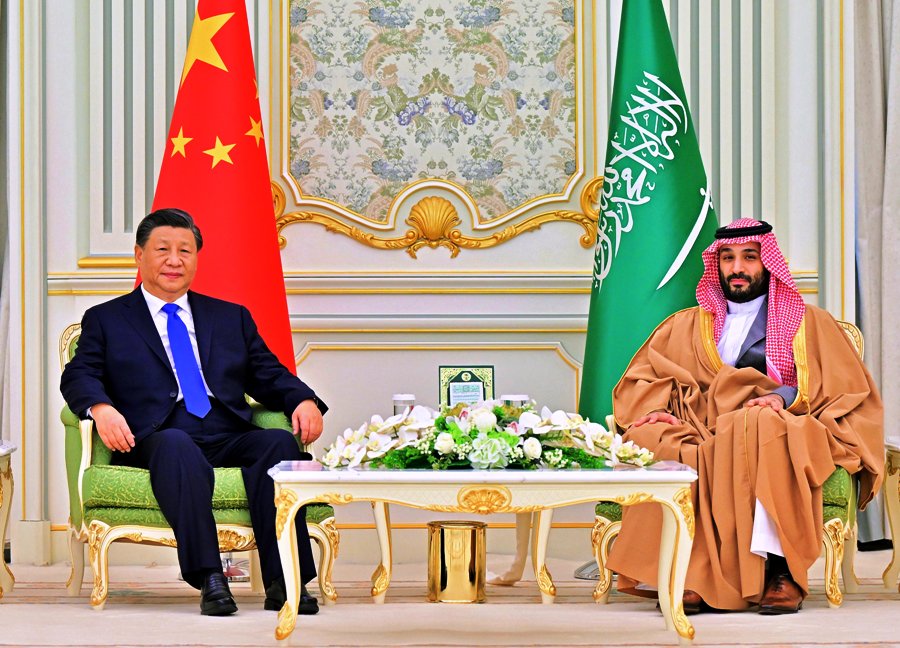SRINAGAR: As expected, the Tehran-Riyadh restoration of ties with Beijing’s help has led triggered a serious debate the world over. With most of the countries supportive of the agreement, a general perception is that the USA, the world’s most powerful nation, has been side-lined by an emerging China.

The most vociferous reaction has come from Israel where senior opposition leaders have termed the agreement Tel Aviv’s failure.
“The restoration of relations between the Saudis and Iran is a serious and dangerous development for Israel that represents an Iranian diplomatic victory. It represents a critical blow to efforts to build a regional coalition against Iran,” Naftali Bennett, Israel’s former Prime Minister was quoted as saying by Times of Israel. “This is a resounding failure of the Netanyahu government and is the result of a combination of diplomatic neglect, general weakness and internal conflict in the country.”
Bennett was not alone. Yair Lapid, also a former Prime Minister also termed the agreement as “a complete failure” for Israel, calling it “a collapse of our regional defensive walls that we had been building against Iran.”
Iran and Saudi Arabia, barely separated by a 150-mile distance were representing two extremes in the Middles East. They were literally rivals in most of the conflict areas in the region. Besides, they were using Shia-Sunni sectarianism as part of their foreign policy in other Muslim countries.

Israel, it may be recalled here had normalised relations with Bahrain, Morocco and the United Arab Emirates in 2020. The agreement with Iran came as Tel Aviv was negotiating a relationship with Riyadh. While these efforts are likely to continue, the possibility of kicking Tehran out of the frame may not be possible. Israel sees Tehran as its enemy and dislikes its nuclear programme and Riyadh was almost thinking on the same terms. This had led to a sort of coalition with the Middle East excluding Iran. The agreement is expected to change that.
Israel apart, the response from almost every other power centre has been positive. Some Western countries including USA and France have responded to the development with a bit of caution.
“United Nations spokesperson Stéphane Dujarric expressed the gratitude of the United Nations Secretary-General to China for hosting the recent talks, and the United Nations Secretary-General welcomed the efforts of other countries in this regard, especially the Sultanate of Oman and Iraq,” Saudi Press Agency reported. “The UN spokesperson also stated that good neighbourly relations between Saudi Arabia and Iran are necessary for the stability of the Gulf region.”
In Brussels, the European Union (EU) has also welcomed the agreement.
“Generally speaking, we welcome any efforts to help end the war in Yemen and de-escalate tensions in the Middle East region. De-escalation and diplomacy together with deterrence are key pillars of the policy President Biden outlined during his visit to the region last year,” US NSA spokesperson John Kirby was quoted as saying. “The Saudis did keep us informed about these talks that they were having, just as we keep them informed on our engagements, but we weren’t directly involved.”

When asked by reporters, Biden said: “Better relations between Israel and their Arab neighbours are better for everybody.”
What is interesting, however, is that the agreement is being seen as a side-lining of the US in the region. A general impression is that the US was selling arms to fuel the conflicts in the region and, instead, China used trade to get the rivals closer.
Major Development: China Brokers Peace Between Iran and Saudi Arabia
The agreement is expected to have a cooling effect on at least three ragging conflicts in the region. In Yemen, Iran was supporting Houthi rebels and Saudi Arabi was funding the exiled government. In Lebanon, Iran was backing Hezbollah and Riyadh money was surviving the Sunni political class. The two countries were the proxy players in Suria where Iran supported President Bashar Assad and Riyadh was closer to the rebels.
Analysts believe t is too early to predict a major shift as the parties will have to work on the agreement. The divisive politics in the region has been played for such a long time that converting it into peace will take a long time. Those unhappy can contribute to making the agreement evaporate.















